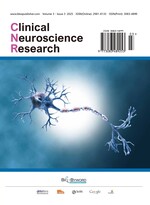Electroacupuncture at Baihui and Shenting Improves Learning and Memory Impairment and Anxiety-like Behavior Induced by Electromagnetic Pulse
Abstract
Following exposure to electromagnetic pulses (EMP), the brain may experience impaired learning and memory capabilities, as well as anxiety-like behaviors. Microglial activation and inflammatory responses have been shown to be associated with EMP-induced brain damage. Electroacupuncture treatment has demonstrated potential in inhibiting microglial activation and mitigating inflammatory responses in various neurological disorders. This study aims to investigate whether electroacupuncture treatment can alleviate EMP-induced learning and memory impairments and to elucidate its underlying mechanisms. Compared with the non-acupoint group and the EA + LPS, the Y-maze and open field tests indicated that the EA group spent more time in the novel arm and the central area of the open field, the proportion of iNOS+/iba-1+ cells in the hippocampus decreased, and the concentrations of pro-inflammatory factors IL-1β, IL-6, and TNF-α decreased. EA improved EMP-induced learning and memory impairment and anxiety-like behavior by inhibiting microglial activation and inflammatory response in the hippocampus.
References
Yang LL, Zhou Y, Tian WD, et al., 2016, Electromagnetic Pulse Activated Brain Microglia via the p38 MAPK Pathway. Neurotoxicology, 2016(52): 144–149.
Gao M, Peng H, Hou Y, et al., 2024, Electromagnetic Pulse Induced Blood-brain Barrier Breakdown through Tight Junction Opening in Rats. Bioelectromagnetics, 45(3): 130–138.
Yao Z, Cai L, Zhao A, et al., 2023, Electroacupuncture Alleviates Neuroinflammation by Regulating Microglia Polarization via STAT6/PPARγ in Ischemic Stroke Rats. Neuroscience, 10(532): 23–36.
Liao YS, Zhang TC, Tang YQ, et al., 2024, Electroacupuncture Reduces Inflammatory Damage Following Cerebral Ischemia-reperfusion by Enhancing ABCA1-mediated Efferocytosis in M2 Microglia. Molecular Brain, 17(1): 61.
Guo Y, 2021, Experimental Acupuncture and Moxibustion Guidance. China Traditional Chinese Medicine Press, Beijing, 78–81.
Wang J, Gao T, Zhu TT, et al., 2024, The Effect and Mechanism of Prolonged Needle Retention at Baihui Point on Improving Neurological Function in Mice with Ischemic Stroke. Chinese Journal of Geriatric Cardiovascular and Cerebrovascular Diseases, 26(1): 81–86.
Guo XL, Liu XN, Li XF, et al., 2023, Research Progress on the Mechanism of Electroacupuncture at Baihui and Shenting Points to Improve Learning and Memory. International Journal of Geriatrics, 44(3): 354–357.
Jia XY, Li HJ, Rao T, et al., 2025, Effects of Electroacupuncture at “Baihui” and “Shenting” on Cognitive Impairment and Mitochondrial Energy Metabolism in Rats with Vascular Dementia. Acupuncture Research, 50(1): 22–31.
Yu MY, Su KQ, Shen X, et al., 2024, Effects of Electroacupuncture on Hippocampal Brain-derived Neurotrophic Factor Transformation and Synaptic Plasticity in Rats with Cerebral Ischemia-reperfusion Learning and Memory Impairment. Acupuncture Research, 49(4): 391–397.

